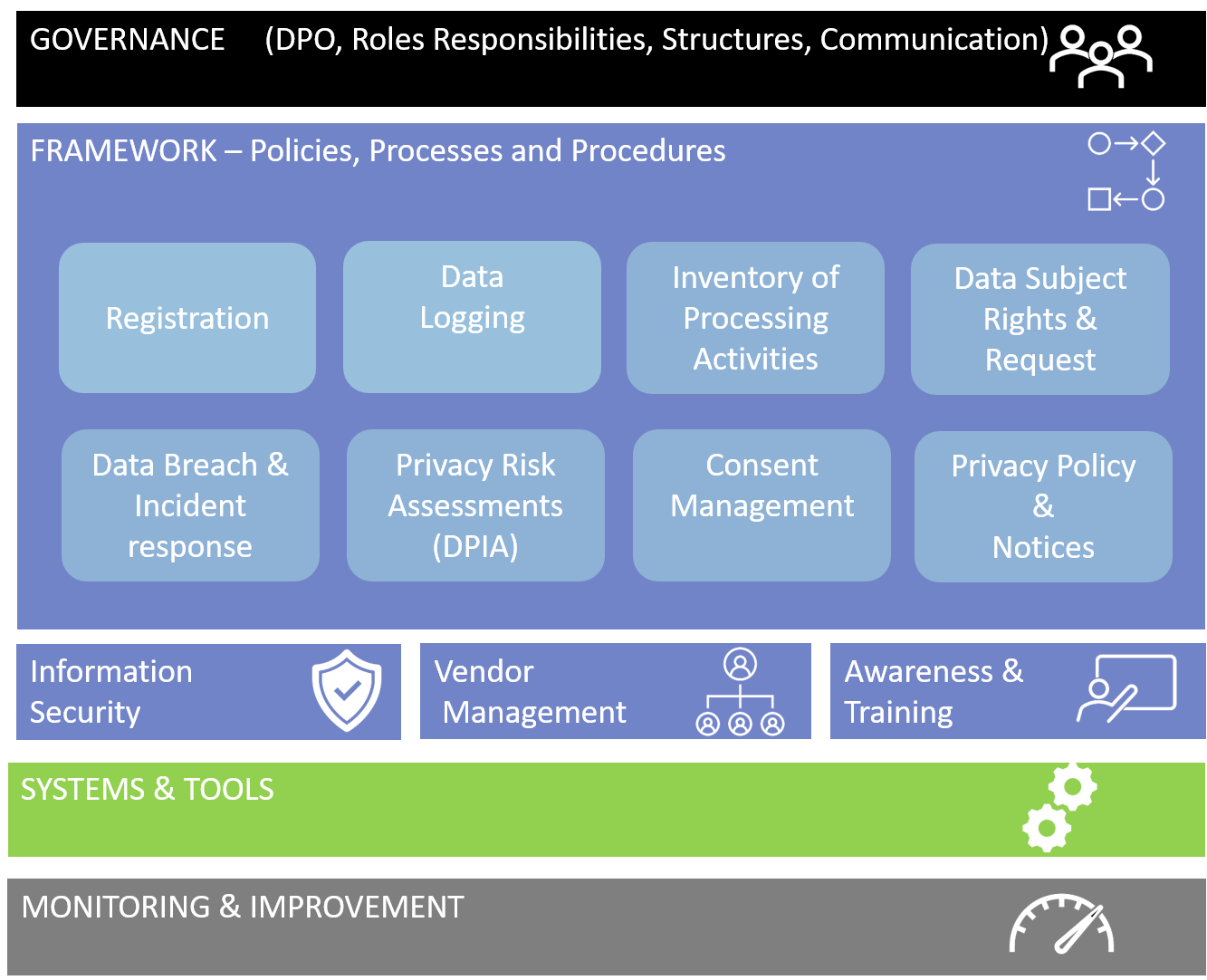Let’s get straight to the point, folks—data protection compliance isn’t just some buzzword for businesses anymore. It’s a necessity, especially when it comes to IPP code 010054. This code is like the golden rulebook that every organization needs to follow if they want to stay on the right side of the law and protect their customers’ sensitive info. Now, whether you’re a small startup or a bigwig corporation, understanding IPP 010054 is crucial because it’s all about safeguarding personal data, and no one wants to end up in hot water over a breach, right?
Here’s the deal: in today’s digital age, data is everything. It’s the lifeblood of businesses, but with great power comes great responsibility. IPP 010054 is basically the roadmap for navigating this complex world of data protection. It’s not just about ticking boxes; it’s about building trust with your customers and ensuring their data is as safe as Fort Knox.
So, buckle up because we’re about to deep-dive into everything you need to know about IPP 010054. From the nitty-gritty details to practical tips, we’ve got you covered. By the time you’re done reading this, you’ll be a certified data protection guru, ready to tackle any compliance challenge that comes your way. Let’s make it happen!
Table of Contents
- What is IPP 010054?
- Why Data Protection Matters
- Key Principles of IPP 010054
- Steps to Achieve Compliance
- Data Collection Best Practices
- Implementing Security Measures
- Conducting Risk Assessments
- Training Your Team
- Legal Ramifications of Non-Compliance
- Future Trends in Data Protection
What is IPP 010054?
Alright, let’s break it down. IPP 010054 stands for Information Privacy Principles, and it’s essentially a set of guidelines that dictate how organizations should handle personal information. Think of it as the ultimate rulebook for data protection compliance. It’s designed to ensure that businesses collect, store, and process data in a way that respects individual privacy rights.
This code isn’t just about following rules; it’s about creating a culture of trust and transparency. When you adhere to IPP 010054, you’re not only protecting your customers but also safeguarding your business from potential legal issues. It’s like having a safety net that keeps everyone on the same page.
Understanding IPP Codes
IPP codes are like the building blocks of data protection. They provide a framework for organizations to follow, ensuring that personal information is handled with care. IPP 010054, in particular, focuses on specific aspects of data protection, such as data accuracy, security, and transparency.
- 1filmy4wap Bollywood Entertainment Guide Safe Download Tips
- Viral Content Secrets Your Guide To Viralkandcom Success
- Data Accuracy: Ensuring that the information collected is correct and up-to-date.
- Data Security: Implementing measures to protect data from unauthorized access.
- Transparency: Being open about how data is collected and used.
Why Data Protection Matters
Let’s face it—data breaches are a nightmare. They can ruin reputations, cost businesses millions, and worst of all, they erode trust. That’s why data protection is such a big deal. IPP 010054 is here to help organizations avoid these pitfalls by providing a clear path to compliance.
Data protection isn’t just about ticking boxes; it’s about creating a safer digital world for everyone. When businesses take data protection seriously, they’re not only protecting their customers but also contributing to a more secure online environment.
Impact on Businesses
Non-compliance with IPP 010054 can have serious consequences for businesses. From hefty fines to damaged reputations, the risks are real. On the flip side, businesses that prioritize data protection can build stronger relationships with their customers and gain a competitive edge in the market.
Key Principles of IPP 010054
Now, let’s talk about the core principles of IPP 010054. These principles are the foundation of data protection compliance, and they’re designed to guide organizations in the right direction. Here’s a quick rundown:
- Lawful and Fair Processing: Data must be collected and processed in a way that’s both legal and fair.
- Purpose Limitation: Data should only be collected for specific, legitimate purposes.
- Data Minimization: Only the necessary data should be collected, and nothing more.
- Accuracy: Data must be accurate and kept up-to-date.
- Storage Limitation: Data shouldn’t be kept longer than necessary.
- Integrity and Confidentiality: Data must be protected from unauthorized access or breaches.
Applying the Principles
Implementing these principles might sound like a lot of work, but trust me, it’s worth it. By following these guidelines, businesses can ensure that they’re handling data responsibly and ethically. It’s all about creating a system that prioritizes privacy and security.
Steps to Achieve Compliance
Alright, so you know what IPP 010054 is and why it’s important. Now, let’s talk about how to achieve compliance. Here’s a step-by-step guide to help you get started:
- Conduct a Data Audit: Identify what data you have and where it’s stored.
- Develop a Compliance Plan: Create a roadmap for achieving compliance.
- Implement Security Measures: Put safeguards in place to protect data.
- Train Your Employees: Educate your team on data protection best practices.
- Monitor and Review: Regularly assess your compliance efforts and make adjustments as needed.
Creating a Compliance Plan
A compliance plan is like your blueprint for success. It outlines the steps you need to take to ensure that your organization is adhering to IPP 010054. This plan should be comprehensive, covering everything from data collection to security measures.
Data Collection Best Practices
Data collection is one of the most critical aspects of IPP 010054. Here are some best practices to keep in mind:
- Only Collect Necessary Data: Stick to the data you need and nothing more.
- Obtain Consent: Make sure you have explicit consent from individuals before collecting their data.
- Be Transparent: Clearly communicate how data will be used and who it will be shared with.
Obtaining Informed Consent
Informed consent is key to data protection compliance. It means that individuals are fully aware of what they’re agreeing to when they share their data. This involves providing clear and concise information about data collection practices.
Implementing Security Measures
Security is at the heart of IPP 010054. Here are some security measures you should consider:
- Data Encryption: Protect sensitive data by encrypting it both in transit and at rest.
- Access Controls: Limit access to data to only those who need it.
- Regular Updates: Keep your systems and software up-to-date to protect against vulnerabilities.
Choosing the Right Security Solutions
Selecting the right security solutions can be overwhelming, but it’s crucial for compliance. Look for solutions that offer robust protection without compromising usability. Remember, the goal is to create a secure environment where data can be safely stored and accessed.
Conducting Risk Assessments
Risk assessments are an essential part of data protection compliance. They help identify potential vulnerabilities and allow you to address them before they become problems. Here’s how to conduct a risk assessment:
- Identify Risks: Pinpoint potential threats to data security.
- Assess Impact: Evaluate the potential impact of each risk.
- Develop Mitigation Strategies: Create plans to mitigate identified risks.
Addressing Identified Risks
Once you’ve identified risks, it’s time to address them. This might involve implementing new security measures, revising data collection practices, or providing additional training to employees. The key is to be proactive and stay ahead of potential issues.
Training Your Team
Employees are often the weakest link in data protection. That’s why training is so important. Here’s how to train your team:
- Provide Regular Training Sessions: Keep your team up-to-date on the latest data protection practices.
- Encourage a Culture of Privacy: Foster an environment where privacy is prioritized.
- Simulate Breach Scenarios: Conduct drills to prepare your team for potential data breaches.
Fostering a Privacy Culture
Culture plays a big role in data protection. When employees understand the importance of privacy and are equipped with the right tools and knowledge, they become your first line of defense against data breaches. Encourage open communication and make privacy a core value of your organization.
Legal Ramifications of Non-Compliance
Non-compliance with IPP 010054 can have serious legal consequences. Here’s what you need to know:
- Fines: Organizations can face hefty fines for non-compliance.
- Reputation Damage: Data breaches can severely damage a company’s reputation.
- Legal Action: Individuals may take legal action against companies that fail to protect their data.
Avoiding Legal Issues
The best way to avoid legal issues is to prioritize compliance. By following IPP 010054 guidelines and implementing robust data protection measures, you can minimize the risk of breaches and ensure that your organization stays on the right side of the law.
Future Trends in Data Protection
As technology evolves, so does the landscape of data protection. Here are some future trends to watch out for:
- AI and Automation: AI-powered tools will play a bigger role in data protection.
- Blockchain Technology: Blockchain could revolutionize data security by providing a decentralized, secure way to store information.
- Increased Regulations: Expect more regulations as governments around the world focus on data protection.
Preparing for the Future
The future of data protection is exciting, but it also comes with challenges. Staying informed and adaptable is key to success. By keeping an eye on emerging trends and technologies, you can ensure that your organization remains compliant and secure in the years to come.
Conclusion
And there you have it, folks—a comprehensive guide to IPP 010054 and data protection compliance. From understanding the principles to implementing security measures, we’ve covered everything you need to know to stay ahead of the game. Remember, data protection isn’t just a checkbox; it’s a commitment to safeguarding your customers’ information and building trust.
So, what are you waiting for? Take action today! Leave a comment, share this article, or dive into more content on our site. Together, let’s make the digital world a safer place for everyone. Cheers!
- Aditi Mistrys Nip Slip The Full Story What Happened Next
- Kannada Movies 2025 Find Watch Online Safely Alternatives


